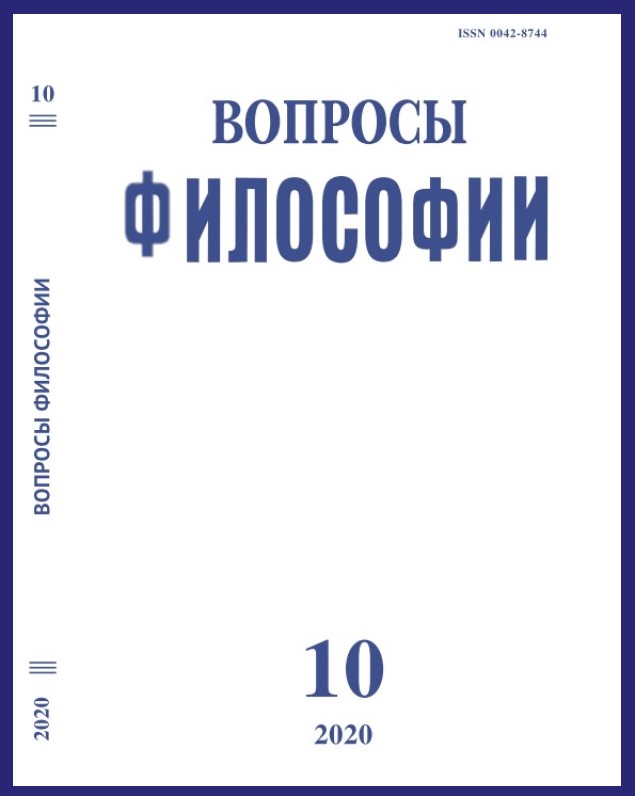Quietism of Wittgenstein, McDowell and Rorty
DOI:
https://doi.org/10.21146/0042-8744-2020-10-181-191Keywords:
metaphilosophy, philosophical methodology, quietism, Wittgenstein, McDowell, Rorty.Abstract
In the twentieth century, the quietist approach to philosophical problems was associated primarily with Wittgenstein’s philosophy. Many attribute this to the fact that in the late period of his work Wittgenstein understood philosophy as a special kind of therapy, aimed not at solving philosophical issues, but at overcoming and eliminating them. The paper points out that problems requiring a therapeutic approach are usually associated with the need to clarify the relationship between mind and world. They can take different forms, but they have in common an attempt to understand how the ideal, conceptual, normative aspects of our conscious activity are related to the physical world. The paper investigates a quietist strategy for solving the rule-following problem proposed by Wittgenstein, clarifies McDowell’s approach to the problem of perceptual knowledge and its connection to Wittgensteinian quietism. It also explores the pragmatic version of quietism proposed by Rorty. A comparison of Rorty’s views with Wittgenstein’s approach reveals the following. Rorty contrasts his version of quietism with object naturalism. Analysis of Rorty’s ideas allows us to show that this term indicates the contemporary realist metaphysics. The paper shows that in fact Rorty opposes the position of anti-realism to the realistic version of metaphysics. The paper concludes that Rorty’s anti-realism is a well-known position within the framework of classical metaphysical discussions and cannot be considered as a variant of quietism

